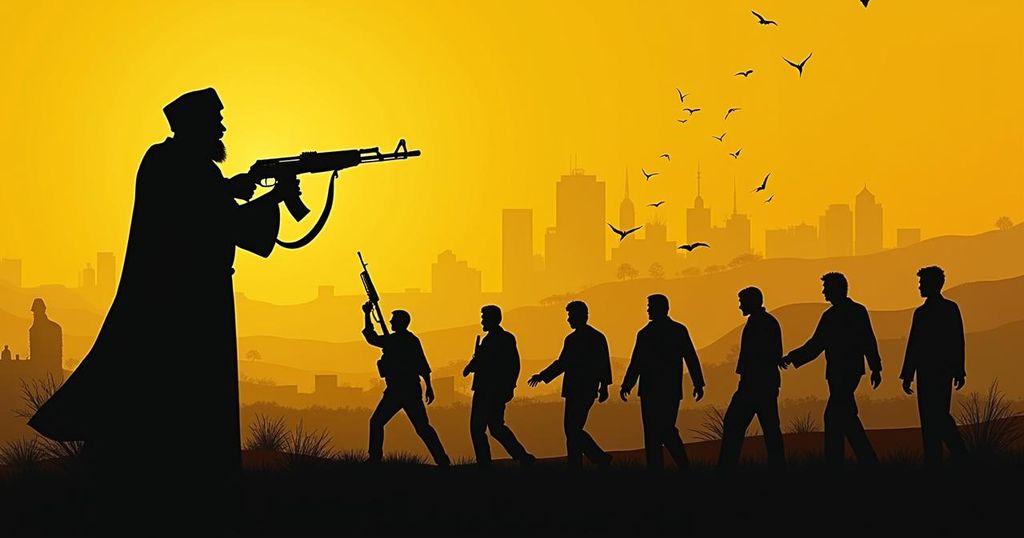The Death of Hassan Nasrallah: Implications for Hezbollah and Lebanon

Hassan Nasrallah, the leader of Hezbollah, was killed in an Israeli airstrike in Beirut, which has raised significant concerns regarding the future of the group. Highly regarded post-2006 Lebanese war, his reputation waned due to military involvement in Syria and criticisms about allegiance to Iranian interests. His departure leaves Hezbollah to navigate its leadership and direction amid ongoing regional conflicts.
Hassan Nasrallah, the prominent leader of Hezbollah, has been confirmed dead following a significant Israeli airstrike on Beirut. This incident, which occurred on a Friday evening, has been acknowledged by the Lebanon-based group. The Israeli military had previously alleged Nasrallah’s assassination earlier that day. His reputation had surged post-2006 after Hezbollah’s conflict with Israel, when many viewed him as a heroic figure, both within Lebanon and across broader Middle Eastern circles. Despite this acclaim, his standing diminished due to Hezbollah’s military engagement in Syria, wherein the group was perceived as acting on behalf of Iranian interests rather than leading a resistance movement. This shift prompted criticism from various Arab nations. Furthermore, Nasrallah faced skepticism from the Sunni Arab community regarding Hezbollah’s involvement in the controversial 2005 assassination of former Prime Minister Rafik Hariri, which led to indictments of several group members by an international tribunal. Born in 1960 in East Beirut, Nasrallah’s formative years were steeped in the political dynamics of the region. He was notably influenced by Shia scholar Musa al-Sadr, which shaped his political and communal advocacy. In 1982, he dissociated from Amal, an established Shia party, after it took a stringent position against Palestinian factions in Lebanon. With Iranian backing, Nasrallah co-founded Hezbollah, which articulated its mission to defend the oppressed in Lebanon and recognized Iran’s Supreme Leader, Ayatollah Khomeini, as its guiding authority. Nasrallah became Hezbollah’s third secretary-general in 1992 after the assassination of his predecessor. Throughout his tenure, he was celebrated for his relatable demeanor and compelling speeches, often blending political rhetoric with religious themes. His ability to resonate with diverse audiences made him a significant figure in the region, bolstered by Hezbollah’s robust media presence. As a leader, Nasrallah managed Hezbollah’s transition into Lebanon’s post-civil war political framework—steering it towards democratization and elections, including a notable joint rallying of Shia and Sunni Muslims against common adversaries like Israel. Despite facing challenges, including accusations of political opportunism and failure to support state disarmament, Nasrallah retained his influence, primarily among Lebanon’s Shia population. In recent times, he faced criticism during national protests in 2019, revealing a schism in public perception. Nevertheless, many continued to regard him as a champion for Shia rights. Nasrallah’s leadership culminated in efforts to assist allies amid regional conflicts, yet ultimately led to his death amidst escalating violence against Hezbollah.
The article discusses the impact of Hassan Nasrallah’s leadership within Hezbollah and the broader implications of his recent assassination by Israeli forces. It examines the trajectory of his political career from being a revered leader following the 2006 war with Israel to a controversial figure due to Hezbollah’s involvement in the Syrian conflict and accusations surrounding past political violence in Lebanon. Furthermore, it provides insight into Nasrallah’s influence on Shia politics and his command over the group for over three decades, culminating in the challenges Hezbollah faces after his death.
Hassan Nasrallah’s assassination represents a pivotal moment for Hezbollah, a group that has long relied on his charismatic leadership. While he significantly shaped the group’s identity and influence within Lebanon and the region, the future of Hezbollah is now uncertain as it seeks to appoint a new leader amidst ongoing tensions with Israel and the regional dynamics at play. This transition will undoubtedly have far-reaching consequences for both Hezbollah and Lebanon at large.
Original Source: kashmirreader.com








